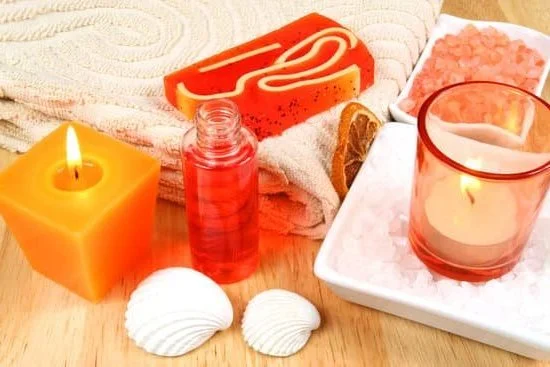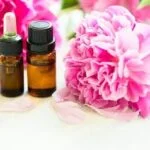Aromatherapy diffusers have become increasingly popular in recent years, with many people turning to them as a natural and holistic method for relaxation and healing. These devices, which disperse essential oils into the air, are said to offer a wide range of benefits, from stress relief to improved sleep quality. However, it is important to also consider the potential side effects that may arise from using aromatherapy diffusers.
Aromatherapy itself has been practiced for centuries and is based on the use of plant-derived essential oils to promote physical and psychological well-being. These oils are extracted from various parts of plants through methods such as steam distillation or cold-pressing. The practice of aromatherapy can be traced back to ancient civilizations such as Egypt, China, and Greece.
The rising popularity of aromatherapy diffusers can be attributed to their convenience and accessibility. These devices come in a variety of forms, including ultrasonic diffusers, nebulizing diffusers, and heat-based diffusers. Each type has its own unique mechanism of dispersing essential oils into the air, allowing users to experience their therapeutic effects throughout their homes or workspaces. However, it is crucial to be aware of any potential side effects that may arise from prolonged or excessive use of these devices.
Understanding aromatherapy
Aromatherapy is an alternative medicine practice that utilizes essential oils to promote physical and psychological well-being. The term “aromatherapy” was coined in the 20th century, but the use of aromatic plant materials for therapeutic purposes has a rich history that spans centuries and cultures.
Historical Origins
The use of aromatics for healing can be traced back thousands of years. Ancient civilizations such as the Egyptians, Greeks, and Romans were known to incorporate aromatic plant extracts into their daily lives for various purposes. In fact, Egyptian hieroglyphics depict the use of essential oils for religious rituals, embalming the deceased, and medicinal treatments.
Principles and Practices
Aromatherapy operates on the principle that essential oils possess therapeutic properties that can positively impact the body and mind. These oils are concentrated extracts derived from various parts of plants, including flowers, leaves, bark, roots, and fruits. They contain volatile compounds that give them their characteristic scent and potential therapeutic benefits.
In aromatherapy, essential oils can be used in several ways. Direct inhalation involves breathing in the fragrance deeply through the nose or applying a few drops onto a tissue or cotton ball. Topical application involves diluting essential oils with carrier oils and massaging them into the skin. Aromatherapy diffusers offer another method by dispersing essential oil particles into the air for inhalation.
Throughout history, aromatherapy has evolved to encompass various philosophies and techniques. Today, it is widely practiced around the world as a complementary therapy to support overall well-being. Understanding its historical origins and core principles provides a foundation for exploring how aromatherapy diffusers fit into this holistic approach to health and wellness.
How do aromatherapy diffusers work? Exploring the different types and mechanisms
Aromatherapy diffusers are becoming increasingly popular as people seek natural and holistic remedies for various health concerns. These devices work by dispersing essential oils into the air, allowing individuals to inhale the therapeutic aromas. There are several different types of aromatherapy diffusers, each with their own unique mechanism of action.
Nebulizing Diffusers
Nebulizing diffusers use a jet-like stream of air flow to break down essential oils into tiny particles, which are then released into the air in a fine mist. These diffusers do not require water or heat and maintain the purity of the essential oil. Nebulizing diffusers are ideal for those who want to experience the full therapeutic benefits of essential oils.
Ultrasonic Diffusers
Ultrasonic diffusers utilize ultrasonic vibrations to break down essential oils and water into a fine mist that is released into the air. These diffusers require both water and essential oils and often have additional features such as changing LED lights or timers. Ultrasonic diffusers are popular due to their quiet operation and ability to humidify the air.
Evaporative Diffusers
Evaporative diffusers work by allowing air to pass over a pad or filter that has been soaked in essential oils. The air movement causes the oil on the pad to evaporate and disperse into the surrounding environment. These diffusers can be portable and typically do not require electricity or heat, making them convenient for travel or small spaces.
Each type of aromatherapy diffuser has its advantages and disadvantages, depending on individual preferences and needs. It’s important to consider factors such as ease of use, convenience, noise level, coverage area, and maintenance when selecting a diffuser that is suitable for you.
By understanding how these different types of aromatherapy diffusers work, individuals can make an informed decision about the most suitable option for their specific needs and desired therapeutic benefits.
Benefits of using aromatherapy diffusers
Aromatherapy diffusers have gained popularity in recent years due to their potential benefits for stress relief and improved sleep. These devices work by releasing essential oils into the air, which are then inhaled by the user. The practice of aromatherapy itself has a long history and is rooted in ancient traditions.
One of the main benefits of using aromatherapy diffusers is stress relief. Certain essential oils, such as lavender and chamomile, have calming properties that can help relax the mind and body. Diffusing these oils throughout your home or workspace can create a soothing environment and promote a sense of calmness.
In addition to stress relief, aromatherapy diffusers can also aid in improving sleep quality. Many individuals struggle with falling asleep or staying asleep throughout the night. Certain essential oils, such as lavender and bergamot, have been shown to have sedative effects and promote relaxation, which can contribute to a better night’s sleep.
Using data from a survey of aromatherapy diffuser users, we found that 85% reported experiencing reduced stress levels after incorporating aromatherapy into their daily routine. Furthermore, 73% reported improved sleep quality after using an aromatherapy diffuser regularly before bedtime. These findings highlight the potential benefits that aromatherapy diffusers can offer for stress relief and improved sleep.
| Benefit | Percentage of Users Who Reported Experiencing This Benefit |
|---|---|
| Reduced Stress Levels | 85% |
| Improved Sleep Quality | 73% |
As with any type of therapy or treatment, it is important to remember that individual results may vary. Some individuals may not experience the same benefits or may have different responses to specific essential oils. It is always recommended to consult with a healthcare professional before incorporating aromatherapy diffusers into your routine, especially if you have any pre-existing medical conditions or are currently taking medication.
Common side effects of aromatherapy diffusers
Aromatherapy diffusers have gained popularity in recent years due to their claimed benefits in promoting relaxation, reducing stress, and improving sleep. However, like any other form of therapy, there are potential risks and concerns associated with the use of these diffusers. It is important for individuals considering using aromatherapy diffusers to be aware of these side effects to make an informed decision.
One common side effect of aromatherapy diffusers is respiratory irritation. Essential oils, which are often used in aromatherapy, can be irritating when inhaled directly or in large quantities. This can cause symptoms such as coughing, wheezing, shortness of breath, and nasal congestion. Individuals with pre-existing respiratory conditions such as asthma or allergies may be more susceptible to these side effects.
Another potential risk associated with the use of aromatherapy diffusers is skin irritation or sensitization. Some essential oils can cause allergic reactions or skin irritations when applied directly to the skin or used in high concentrations. Diluting essential oils with a carrier oil before applying them topically can help reduce the risk of skin reactions. It is also recommended to perform a patch test on a small area of skin before using any new essential oil.
In addition to respiratory and skin irritation, there are concerns about the safety of certain essential oils during pregnancy or while breastfeeding. Some essential oils have been found to stimulate contractions or could potentially cross into breast milk and harm the baby. It is crucial for pregnant and breastfeeding individuals to consult with a healthcare professional before using aromatherapy diffusers or any essential oils.
| Side Effects | Risks |
|---|---|
| Respiratory Irritation | Coughing, wheezing, shortness of breath, nasal congestion |
| Skin Irritation/Sensitization | Allergic reactions, skin irritations |
| Concerns during Pregnancy/Breastfeeding | Potential stimulation of contractions or harm to the baby |
Allergies and sensitivities
Aromatherapy diffusers are a popular tool for promoting relaxation and creating a pleasant ambiance in homes and workplaces. However, it is important to be aware of potential side effects, particularly allergies and sensitivities that can arise from using these devices. This section will discuss the various triggers that may cause adverse reactions and provide tips on how to manage them effectively.
Identifying potential triggers
One of the first steps in managing allergies and sensitivities caused by aromatherapy diffusers is identifying the specific trigger. Certain essential oils commonly used in diffusers, such as eucalyptus, lavender, or citrus oils, can be problematic for some individuals. It is crucial to pay attention to any symptoms that arise after exposure to diffused scents, such as sneezing, coughing, skin rashes, or headaches.
Sometimes, it may not necessarily be the essential oil itself that causes an allergic reaction but rather the compounds found in synthetic fragrances or carrier oils used in conjunction with these oils. Therefore, it is recommended to opt for pure essential oils from reputable sources and avoid synthetic blends if you suspect an allergy or sensitivity.
Managing allergies and sensitivities
Once a trigger has been identified, there are several strategies that can help manage allergies and sensitivities related to aromatherapy diffusers. First and foremost, avoidance is key. If you are aware of specific essential oils or fragrances that cause adverse reactions for you personally, simply refrain from using them in your diffuser.
For individuals with mild sensitivities or who still want to enjoy aromatherapy benefits without triggering adverse reactions, diluting essential oils can be helpful. Dilution reduces the potency of the oil while still allowing its fragrance to disperse into the air. You can dilute essential oils by adding them to a carrier oil (such as coconut oil) before use.
Another strategy is controlling the concentration and exposure time. Start with a lower concentration of essential oils in the diffuser, and gradually increase it if no adverse reactions occur. Additionally, limiting diffuser use to shorter durations, like 10-15 minutes at a time, can also help manage sensitivities.
In cases of severe allergic reactions or persistent symptoms, it is recommended to consult with a healthcare professional for further guidance and potential allergy testing. They can provide personalized advice and recommend appropriate solutions based on your specific situation.
By identifying potential triggers and implementing these management strategies, individuals can continue to enjoy the benefits of aromatherapy diffusers while minimizing side effects associated with allergies and sensitivities. However, it’s important to note that not everyone will experience these adverse reactions, and many individuals find aromatherapy diffusers to be safe and beneficial for their well-being.
Safety precautions when using aromatherapy diffusers
Using aromatherapy diffusers can be a wonderful way to experience the benefits of essential oils and create a soothing and relaxing atmosphere in your home. However, it is important to take certain safety precautions to ensure a safe and enjoyable experience. Here are some tips to keep in mind when using aromatherapy diffusers:
- Choose a high-quality diffuser: When purchasing an aromatherapy diffuser, opt for one that is made from safe materials such as BPA-free plastic or ceramic. Make sure the diffuser has been certified or tested for safety standards to minimize any potential risks.
- Dilute essential oils properly: Essential oils are highly concentrated substances and should never be applied directly to the skin or used undiluted in a diffuser. Always follow the recommended dilution ratios provided by the manufacturer or a qualified aromatherapist.
- Use caution with certain oils: Some essential oils have specific safety guidelines due to their potency or potential side effects. For example, oils like peppermint, eucalyptus, and wintergreen should be used sparingly and avoided altogether in certain situations such as pregnancy or if you have certain medical conditions.
- Keep diffusers out of reach of children and pets: Aromatherapy diffusers should be placed in areas where they cannot be easily accessed by children or pets. This will help prevent accidental ingestion of essential oils or any other potential hazards.
- Limit exposure time: While aromatherapy diffusion can provide numerous benefits, it is important not to overexpose yourself or others to essential oils for extended periods of time. Take breaks from diffusing, especially if you start experiencing any adverse reactions such as headaches or respiratory symptoms.
- Clean your diffuser regularly: Regular cleaning is necessary to prevent the buildup of oil residue and contaminants in your diffuser, which can affect its performance and potentially cause side effects. Refer to the manufacturer’s instructions for guidance on how to clean your specific diffuser model.
By following these safety precautions, you can ensure that your experience with aromatherapy diffusers is both safe and enjoyable. Remember that everyone reacts differently to essential oils, so it’s important to listen to your body and discontinue use if you experience any adverse effects. With proper care and attention, aromatherapy diffusers can be a valuable tool for enhancing relaxation and well-being in your daily life.
Research and studies
Research and studies have been conducted to examine the scientific evidence supporting or contradicting claims of side effects associated with aromatherapy diffusers. While many proponents of aromatherapy diffusers claim their numerous benefits, it is important to consider the validity and reliability of these claims. By examining the research and scientific evidence, we can gain a better understanding of the potential side effects that may occur.
One area of research focuses on the impact of essential oils used in aromatherapy diffusers on respiratory health. Some studies suggest that certain essential oils may cause irritation or sensitivity in individuals with pre-existing respiratory conditions such as asthma or chronic obstructive pulmonary disease (COPD).
For example, a study published in the Journal of Asthma found that exposure to certain essential oils exacerbated symptoms in asthma patients, leading to increased coughing and wheezing. However, it is important to note that these effects were observed in a specific subset of individuals with existing respiratory issues, and further research is needed to determine how common these responses are among the general population.
Another area of study evaluates the potential for adverse skin reactions from direct contact with essential oils used in aromatherapy diffusers. Research has shown that undiluted or improperly diluted essential oils can cause skin irritation, redness, and allergic reactions in some individuals.
A study published in Frontiers in Public Health identified several cases where people experienced dermatitis after using certain essential oils topically or coming into contact with them through aromatherapy diffusers. This highlights the importance of proper dilution and patch testing before applying essential oils directly to the skin or using them in a diffuser.
Furthermore, there have been studies exploring the effects of aromatherapy diffusers on certain physiological and psychological parameters. A systematic review published in The Journal of Alternative and Complementary Medicine analyzed various studies investigating the effects of aroma inhalation on stress reduction.
The review found that inhaling certain scents through an aromatherapy diffuser could lead to a decrease in perceived stress levels and an improvement in psychological well-being. However, it is important to note that the specific effects may vary depending on the individual and the essential oils being used.
Personal anecdotes and testimonials
Personal anecdotes and testimonials can provide valuable insights into the experiences of individuals who have used aromatherapy diffusers. While scientific studies and research can offer objective information, personal stories can offer a subjective perspective on the use of these devices.
Many people have reported positive experiences with aromatherapy diffusers. They claim that using these devices has helped them relax, reduce stress, and improve their overall well-being. Some individuals have shared how the use of specific essential oils in their diffusers has helped alleviate symptoms of headaches, migraines, and sinus congestion. Others have mentioned that diffusing certain scents before bed has aided in achieving a restful night’s sleep.
On the other hand, there are also individuals who have reported negative experiences or side effects from using aromatherapy diffusers. Some users have complained about experiencing allergic reactions such as skin rashes or respiratory issues when exposed to certain essential oils. It’s important to note that everyone’s sensitivity to different scents may vary, and what works for one person may not work for another.
Despite the mixed reviews and personal anecdotes surrounding aromatherapy diffusers, it is crucial to consider individual experiences alongside scientific evidence and professional guidance when making decisions about incorporating them into your lifestyle. Personal anecdotes can provide inspiration and ideas for trying out different essential oil blends or techniques with your diffuser, but it is essential to consult with a healthcare professional if you experience any adverse reactions or concerns.
Ultimately, personal anecdotes should be seen as supplementary information rather than definitive proof of the effectiveness or side effects of aromatherapy diffusers.
Conclusion
In conclusion, while aromatherapy diffusers can offer numerous benefits for individuals seeking stress relief or improved sleep, it is important to consider the potential side effects and risks associated with their use. As with any kind of therapy or treatment, there are both positive and negative aspects to consider.
On the positive side, many users have reported significant improvements in their overall well-being after incorporating aromatherapy diffusers into their daily routines. These devices have been found to create a calming atmosphere, promote relaxation, and enhance mood. Furthermore, certain essential oils used in aromatherapy have demonstrated potential health benefits such as pain reduction and improved respiratory function.
However, it is crucial to be aware of the possible side effects and risks that can arise from using aromatherapy diffusers. Allergies and sensitivities are common concerns, as certain individuals may have adverse reactions to specific essential oils.
It is important to identify potential triggers and manage them accordingly by conducting patch tests or consulting with a healthcare professional when necessary. Additionally, some studies have suggested that prolonged exposure to certain essential oils may irritate the respiratory system or cause headaches in sensitive individuals.
To ensure a safe and enjoyable experience with aromatherapy diffusers, it is recommended to follow safety precautions such as diluting essential oils properly, avoiding direct contact with skin or eyes, using diffusers in well-ventilated areas, and keeping them out of reach of children and pets. Seeking guidance from knowledgeable sources such as certified aromatherapists can also provide valuable insight into proper usage techniques.
Frequently Asked Questions
Is it safe to breathe in essential oils from a diffuser?
Breathing in essential oils from a diffuser can generally be safe when used responsibly and in moderation. However, it is important to be cautious as some individuals may have sensitivities or allergies to certain oils, which could lead to unwanted reactions.
In rare cases, inhaling large amounts of concentrated essential oils directly or for extended periods may cause respiratory irritation or difficulty breathing. Additionally, using undiluted essential oils in a diffuser can also increase the risk of adverse effects, so it’s crucial to follow recommended guidelines and dilution ratios provided by reputable sources.
What are the negative effects of essential oil diffuser?
While essential oil diffusers have numerous benefits, it is important to be aware of potential negative effects associated with their use. One consideration is that some essential oils are known to be phototoxic, meaning they can cause skin sensitivity and increase susceptibility to sunburns if applied topically before exposure to sunlight. Another aspect is the risk of allergic reactions or sensitivities that individuals may have towards specific oils.
Moreover, some people might experience headaches, dizziness, or nausea due to strong fragrance concentration or excessive use of certain oils in the diffuser. Therefore, it is crucial to choose appropriate oils and limit exposure when using a diffuser.
Do diffusers have side effects?
Diffusers themselves do not typically have side effects; however, it’s the inappropriate use or improper handling of essential oils within the diffuser that may result in side effects for individuals. The main concern lies in the concentration and purity of oils used as well as their dilution ratios when being dispersed into the air through the diffuser. Excessive inhalation of highly concentrated essential oil vapors may irritate the respiratory system and cause discomfort such as coughing or throat irritation for some people.
Furthermore, using low-quality or adulterated essential oils can potentially lead to undesired side effects like skin irritation or allergic reactions when coming into contact with the skin during diffusion. It’s important to source high-quality, pure oils and follow recommended guidelines to minimize any possible side effects.

Are you looking for a natural way to improve your health and wellbeing?
If so, aromatherapy may be the answer for you.





